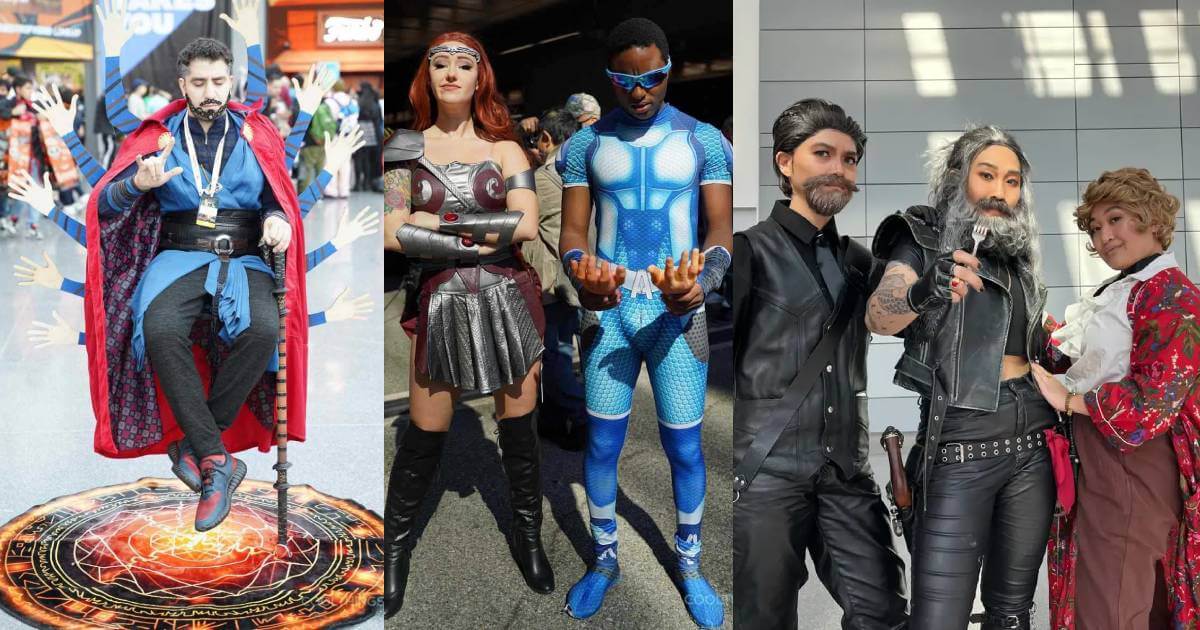
Once a Hobby, Cosplay is Becoming Serious Business
Cosplay, very much a hobby and subculture for some, is becoming a serious business for others.
The popularity of cosplay was on full display the New York Comic Con last week where characters ranging from Stranger Things’ Eddie Munson and She-Hulk: Attorney at Law’s Jennifer Walters to Bob Ross and Batman were roaming the show floor.
But with that growth—and as more cosplayers are paid endorsement or appearance fees—comes the question of when does that homage to a property turn into trademark infringement?
For the most part, IP owners have long given cosplayers a pass, even inviting them to film premieres and employing their fandom and talents as part of a broader marketing strategy. Revlon worked extensively with cosplayers as part of a Wonder Woman 1984 make-up collection, including Lucia Marte, a micro-influencer known for her skill as a cosplay artist.
Beyond these partnerships, many cosplayers have become stars in their own right. Taya Miller, for example, is a social media star who has amassed 4.8 million followers on TikTok and another 703,000 on Instagram by cosplaying characters from the likes of Disney and Star Wars.
And while, in many cases, cosplay is done for personal or non-commercial use, the line between business and pleasure is blurring. This is especially true when cosplayers start earning large amounts of money but the IP owner doesn’t receive anything. In Japan, long considered a mecca for cosplayers and where the term cosplay was coined in 1984, the government is weighing the amendment of the country’s copyright law, potentially turning the hobby into infringing behavior.
“It has been, to this point, very additive to our marketing and the only time we have kept watch on it is to make sure they are not disparaging the brand,” said Brad Woods, chief marketing officer at Viz Media, whose properties include My Hero Academia, Bleach, and Naruto. “We haven’t had any issues yet, but if someone came out and said ‘I am one your characters, this is my whole persona and how I make my living,’ we would probably need to have a deeper conversation.”
In the case of licensees, many seek approval from the property’s licensors before working with cosplayers portraying the characters. Funko’s Loungefly Division works with Digital Fox Talent, which represents some cosplayers, for promotions for its bags, apparel, and other products, said Ilana McBride, director of marketing and social media. It has worked with Miller and Bella “Halcybella” LeBaron, who has 3.8 million followers on TikTok and 248,000 on Instagram where she cosplays Wonder Woman, Spider-Man, and other characters.
“We partner with [cosplayers] regularly because they do looks inspired by characters and our bags might complete the look,” McBride said. “Cosplay used to be considered a little bit weird, but now cosplayers brag about their look. From a marketing perspective many licensors don’t know what to do with cosplay, but it shouldn’t be a [trademark or copyright] issue unless they are completely accurate and for the licensors, it shows they are embracing the culture.”
Furthermore, some fan organizations provide structure to the world of cosplay. The 25-year-old 501st Legion isn’t affiliated with Disney or Lucasfilms, but it’s dedicated to creating and wearing screen-accurate replicas of Star Wars characters and has 14,000 members globally with 26,000 approved costumes. And DisneyBound is a blog-turned-group dedicated to creating stylish outfits for cosplaying Disney characters.
“It’s rare that cosplay doesn’t help a brand and many cosplayers would be thrilled to be involved and be part of the world they love,” said Catherine Schuller, who co-founded COSMOSDA, which operates The Cosplay Runway that debuted during the New York Fashion Week in September. “The cosplay conventions draw thousands of people, equally split between male and female, and that is why brands are paying attention.”

















